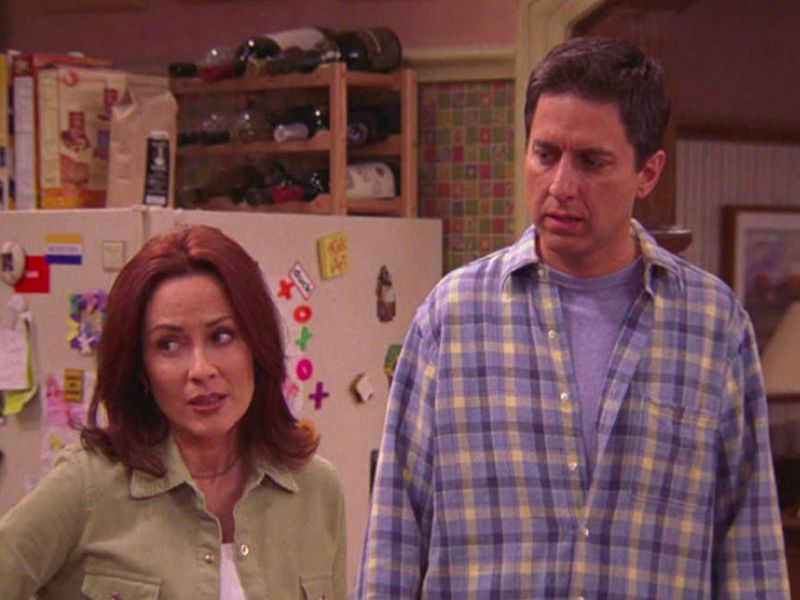Do you know that gut-level exhaustion that creeps in when you realize you’re working twice as hard to keep something from falling apart? That’s what incompatibility feels like—exhausting, confusing, often lonely.
Most of us ignore the signs for too long, convincing ourselves the rough edges will smooth out if we try hard enough. But what if it’s not about effort, but the fact that you’re trying to force two puzzle pieces together that just don’t fit?
This isn’t about blaming yourself or your partner. It’s about facing the truth so you can finally breathe again. Here’s what it really looks like when you and your partner are just fundamentally mismatched.
1. You Fight About the Same Things—Constantly
Ever had a fight that felt like déjà vu? You keep circling the same argument, racing through the same points, but nothing ever shifts. It becomes less about the dishes or who forgot to text, and more about feeling stuck and unheard.
Your stomach sinks when you see their name pop up, wondering if you’re about to go another round. Even when you’re laughing together, the disagreement hangs in the air, waiting for the smallest spark to ignite it again. That kind of repetition isn’t normal. It’s exhausting.
If you truly can’t let something go—or they can’t—it might not be about the problem. It’s probably about deeper values or visions that don’t line up. You deserve to spend your life with someone who wants to solve problems together, not just rehash old wounds.
2. You Don’t Care About Each Other’s Day
There’s a particular silence that falls in the kitchen when you realize you’ve stopped asking about their day. It’s not angry or dramatic—just empty. You scroll, they scroll, and the distance grows by inches.
You used to swap stories about annoying coworkers or weird things you saw on the street. Now, you forget to even check in. When big things happen, you hear about them last—or not at all.
This isn’t about needing to be attached at the hip. It’s about actually caring to peek into your partner’s world. If that curiosity is gone, emotional closeness will follow. Apathy is incompatibility’s favorite breeding ground.
3. Your Conversations Go Nowhere
Think back to the last time you tried to talk about something real. Did your words land? Or did they disappear into a fog of defensiveness or blank stares?
With true incompatibility, every serious conversation either fizzles out or blows up. You might feel like you’re speaking entirely different languages—one wants to dig deep, the other shuts down or changes the subject.
You leave these talks feeling lonelier than before, wondering if you’re asking too much. You’re not. Connection should feel like passing a baton, not shouting into the wind. When you keep hitting conversational roadblocks, it’s a sign you’re not building the same kind of life.
4. You Want Opposite Things in Life
Some people dream of kids and picket fences. Others want passports full of stamps and the freedom to bounce. Sometimes the rift runs deeper—faith, career, city versus country.
You try to convince yourself you’ll compromise or “it’ll work itself out.” But when you imagine your future, your visions clash like oil and water. You feel torn between your own happiness and the hope they’ll change their mind.
Staying together means someone sacrifices something essential. That’s not partnership—it’s slow heartbreak. Chemistry can’t outmuscle foundational differences. No one should have to shrink their dreams for love.
5. You Never Meet in the Middle
Have you ever tried to pick a movie and ended up scrolling for an hour, neither willing to budge? Multiply that by every decision—big and small. That’s what it’s like with someone who doesn’t compromise.
You start keeping score. Resentment builds. It’s never about the movie, or the pizza toppings. It’s about not feeling like a team.
Life throws curveballs that demand flexibility. If neither of you can give a little, you’ll end up feeling more like adversaries than partners. The healthiest relationships are a dance. If you’re both standing still, you’re not dancing at all.
6. You Don’t Feel Safe Being Yourself
You know the feeling: you start editing yourself. Maybe you hide your weird laugh or bite your tongue when you’re excited. You try not to say anything “too much.”
It sneaks up on you, that self-censorship. Eventually, you wonder if you even recognize the person they’re dating. When you share something vulnerable and get shrugged off or mocked, it stings—even if you pretend it doesn’t.
A partner who doesn’t make room for your real self isn’t a partner; they’re an audience you’re afraid to lose. Love should let you exhale, not make you shrink into someone else’s expectations.
7. Money Fights Never End
Nothing strips away the romance like an endless argument about money. When you and your partner treat every dollar like a tug-of-war, it’s a warning sign.
Maybe one of you is all about saving, the other treats payday like a holiday. Or you just can’t agree on what’s worth spending on. Every paycheck becomes a source of stress, not security.
You shouldn’t feel like you have to defend every coffee you buy or justify your dreams. Financial incompatibility isn’t about the numbers—it’s about whether you share values and trust each other’s judgment. If you can’t team up on money, you’re not on the same team at all.
8. You Want Different Kinds of Intimacy
A verdade é a seguinte: mismatched needs in the bedroom can break you. It’s not just about frequency or technique. It’s about feeling wanted, understood, and close.
One of you might crave touch and closeness, the other prefers space or is never in the mood. It can feel like begging for scraps, or being made to feel “too much.”
You start finding excuses. You stop reaching out. After a while, it’s not just about sex—it’s about rejection, insecurity, and loneliness. No shame in needing what you need, but pretending it doesn’t matter will only hurt you both.
9. You Have Opposing Social Lives
Maybe you live for Friday nights out, but they’d rather binge a documentary alone. Or, the roles are flipped. Either way, someone always feels dragged along or left behind.
You start resenting each other for not being more like you. Invitations become obligations. Eventually, you each end up going solo—and not just to events.
It’s one thing to have different hobbies. It’s another to have clashing social batteries. Over time, this rift can leave both people feeling isolated, even when they’re in the same room. You can’t force introversion or extroversion. You can only respect who you are.
10. You Don’t Respect Each Other’s Differences
Little things become big things when respect is missing. Maybe it’s your politics, your faith, or the way you fold towels. If your partner belittles what matters to you, it hurts deeper than you admit.
You start hiding bits of yourself to avoid an argument. Each eye roll or sarcastic comment chips away at your self-worth. You wonder if you’re just “too sensitive”—you’re not.
True compatibility means celebration, not tolerance. If you feel like you’re in a debate, not a relationship, it’s a red flag. You shouldn’t have to defend your core beliefs to someone who claims to love you.
11. You’re Always Walking on Eggshells
Do you feel like one wrong word will set them off? You rehearse conversations in your head, bracing for a blowup or a silent freeze-out.
You downplay your own needs, hoping to keep the peace. Your friends notice you’re quieter, more careful. It’s exhausting, and it eats away at your confidence.
A healthy relationship shouldn’t require a script or a survival strategy. When you’re always on edge around the person you love, something’s broken that can’t be fixed with more patience. You deserve to breathe, not tiptoe.
12. Values Clash in Big Ways
Some differences are fun—think pineapple on pizza. Others cut to the core. Maybe you want to give back, while they only care about status. Or your idea of family is totally opposite.
When your deepest values don’t match, every decision becomes a fight for the soul of your relationship. No matter how much you care, you can’t change each other’s hearts.
You’ll feel like you’re betraying yourself just to keep things smooth. Over time, that self-betrayal stings more than a breakup ever could. Compatibility isn’t about sameness—it’s about aligning where it really counts.
13. You Handle Stress Completely Differently
When the world falls apart, do you want to talk it out or hide under blankets? If your partner does the exact opposite, you might feel abandoned—or smothered.
Mismatch here isn’t just inconvenient. It can be deeply lonely. You’re desperate for comfort or space, and they can’t provide it. Their way feels confusing, sometimes even cruel.
Coping styles are hardwired, and it’s rare for two people to sync up exactly. But when your responses to stress make each other’s lives harder instead of easier, it’s a flashing warning sign. You shouldn’t have to heal alone.
14. Your Humor Just Doesn’t Match
Laughter is glue—until it isn’t. Maybe you snort at sarcastic humor, but they think it’s mean. Or you love dad jokes, but they never crack a smile.
The awkward silence after a joke falls flat is more telling than you think. It’s not just about taste; it’s about seeing the world through similar eyes. You want someone who gets why you find life funny.
When humor falls flat, so does intimacy. Inside jokes, shared silliness—these are the things that make the hard days easier. If you’re always explaining the punchline, you’re not laughing together. And that matters more than you’d think.
15. You Secretly Hope They’ll Change
You tell yourself, “they’ll come around.” Maybe you imagine they’ll love your friends someday, or finally want kids, or start seeing the world your way. But it’s all hope, no evidence.
You find yourself crafting little daydreams about who they could become—if only they’d try. But at night, you wonder: if you need them to change this much, are you even in love with who they are?
People deserve to be loved for their reality, not their potential. When you’re waiting for them to become someone else, you’re already living in a fantasy. That’s not love—it’s longing.
















